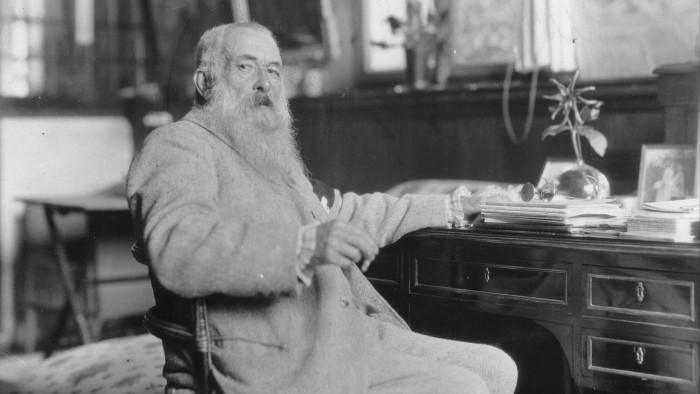Stay informed with free updates
Simply sign up to the Chinese business & finance myFT Digest — delivered directly to your inbox.
Liquidators of failed property developer China Evergrande have recovered just $255mn of assets, including a Claude Monet painting, since a formal process began 18 months ago, highlighting the scale of the challenge in unravelling the world’s most indebted real estate company.
The assets recovered so far amount to less than 1 per cent of the group’s total assets of Rmb1.8tn ($250bn) in 2022, the most recent figures following its collapse a year earlier.
Evergrande’s default on its international bonds unnerved markets and marked the reversal of a multi-decade property boom in mainland China. In January 2024, a Hong Kong court issued a winding-up order, ending restructuring talks with offshore bondholders. Tiffany Wong and Edward Middleton, managing directors at Alvarez & Marsal, were appointed to liquidate Evergrande’s Hong Kong-listed entity.
However, the vast majority of the developer’s assets are on the mainland, which operates under a separate legal regime. Beijing has also prioritised the completion of unfinished construction projects as prices remain under pressure from a slowdown now well into its fourth year.
The entities over which the liquidators have control were valued at just $3.5bn as of January last year, the Alvarez & Marsal pair said on Tuesday.
It has recovered $11mn from the Hong Kong-based holding company and $244mn from subsidiaries, of which $167mn has been fully realised. Alvarez & Marsal warned that “stakeholders should not assume that the whole of the US$244mn . . . will be available to the Company”.
The funds recovered stemmed from sales of “non-core” assets, including cars, club memberships, school debentures and artwork, said the firm.
People familiar with the situation said a painting by Monet was sold as part of the liquidation. The Financial Times could not establish which painting by the French impressionist was sold.
 The near deserted Evergrande City Plaza shopping mall in Beijing © Bloomberg
The near deserted Evergrande City Plaza shopping mall in Beijing © Bloomberg
Evergrande had total liabilities of Rmb2.4tn as of its 2022 annual report, which was released after a significant delay. In March last year, Chinese authorities accused it of inflating revenues by Rmb80bn over 2019 and 2020.
The Alvarez & Marsal liquidators pointed to the “scale and complexity” of Evergrande’s operations, with 1,300 projects under development in more than 280 cities, as a challenge to recovering assets.
“The value of the Company’s liquidation estate — its assets and liabilities — is so uncertain as to render it impossible for the Liquidators to provide any guidance regarding dividend expectations at this point in time,” it said.
The liquidators are also pursuing legal action against auditor PwC China, which was fined Rmb441mn by Chinese authorities last year and banned for six months.
Evergrande’s liquidation is being closely watched by investors in dozens of other Chinese property groups that are in restructuring talks and also face possible winding-up orders in Hong Kong.
Less than 1 per cent of about $150bn in offshore property bonds have been recovered so far, despite years of restructuring talks, the FT reported this year.
On Monday, a Hong Kong court ordered the liquidation of state-linked China South City, a smaller property developer but the largest to face such an order since Evergrande, in a sign of the continued impact of China’s property crash.
Additional reporting by Kaye Wiggins and Chan Ho-him
This article has been amended since first publication to reflect the fact PwC China was fined Rmb441mn last year, and not $441mn as originally stated.

